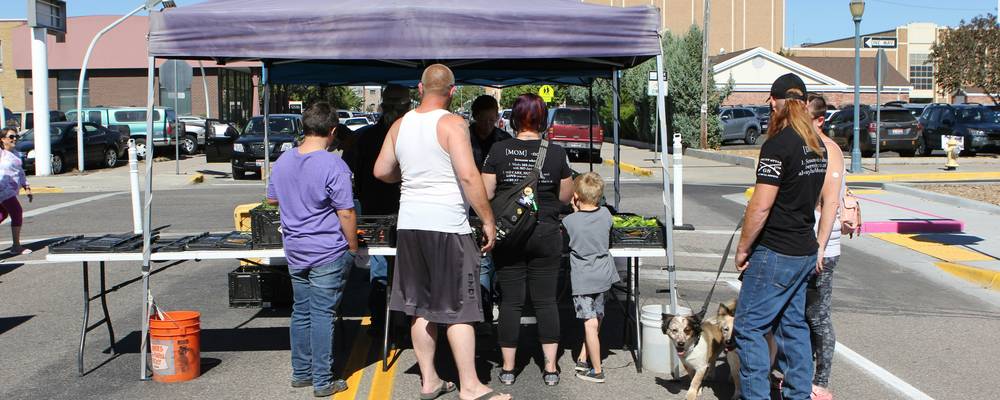Utah Community Resources & Nonprofit Assistance Guide
Utah offers a wide range of community and nonprofit resources to help residents with food, housing, legal issues, mental health, utilities, employment, and more. This guide organizes resources by category, explains how to access help, and shows how community support can be coordinated with state benefits for maximum impact.
What Are Community Resources?
Community resources include food pantries, housing programs, legal clinics, mental health providers, utility aid, and organizations that serve specific groups like seniors, immigrants, or people with disabilities. Most are run by nonprofits, faith groups, or local governments. Many are free or low-cost and open to anyone in need, regardless of immigration status or benefit eligibility.
Why Use Community Resources? They can help you:
- Get immediate help while waiting for state benefits (SNAP, Medicaid, etc.)
- Find support not covered by government programs (emergency rent, legal help)
- Address food insecurity, homelessness, or utility shutoff risks
- Access specialized services (mental health, disability, refugee support)
2-1-1 Utah is Utah's central referral hotline and database for finding community resources statewide. See details below to use 2-1-1 effectively.
Types of Community & Nonprofit Resources in Utah
| Resource Type | What It Offers | Example Providers/Contacts |
|---|---|---|
| Food Pantries & Meal Programs | Groceries, hot meals, and nutrition support for families and individuals | Utah Food Bank, local churches, search 2-1-1 Utah |
| Housing & Homelessness Support | Emergency shelters, rental assistance, rapid rehousing, transitional/supportive housing | Salt Lake Valley Coalition, YWCA, Road Home, local housing authorities |
| Legal Aid & Immigration Services | Free/low-cost legal help for eviction, benefits, immigration, family law | Utah Legal Services, Catholic Community Services, Utah Immigration Collaborative |
| Mental Health & Crisis | Counseling, therapy, crisis lines, addiction support | Utah Crisis Line (988), NAMI Utah, local mental health authorities |
| Utility Assistance | Help with heating/cooling bills, shutoff prevention, weatherization | HEAT/LIHEAP, utility company programs, see guide |
| Employment & Job Training | Job search help, resume workshops, skills training, clothing closets | Utah DWS, Easterseals, Goodwill, local workforce centers |
| Immigrant & Refugee Services | Case management, language access, cultural support, citizenship help | Catholic Community Services, International Rescue Committee, local coalitions |
| Senior Services | Meals on Wheels, transportation, home care, Medicare counseling | Salt Lake County Aging & Adult Services, local senior centers |
| Disability Organizations | Independent living, assistive devices, peer support, advocacy | Utah Center for Assistive Technology, Disability Law Center |
For more details on statewide and national organizations, see the full resource directory below.
How to Find & Access Community Help in Utah
Step-by-Step: Using 2-1-1 Utah for Community Resources
- Call 2-1-1 from any phone in Utah, or text your zip code to 898-211.
- Describe your needs (food, rent, legal, etc.). 2-1-1 specialists will search their database and refer you to local programs.
- Get contact info, eligibility details, and (if needed) help in your preferred language or accessible format.
- For online search, visit 211Utah.org and browse by category or location.
If you have trouble with transportation, documentation, or language access, mention this to the 2-1-1 specialist—they can prioritize referrals to programs that can accommodate your situation.
Coordinating Community Resources with State Benefits
You can use community resources alongside state benefits (like SNAP, Medicaid, TANF). For example:
- Visit food pantries while waiting for your SNAP application to process.
- Use rental aid to avoid eviction even if you are on a Section 8 waiting list.
- Seek mental health counseling from nonprofits while applying for Medicaid or disability benefits.
Many organizations do not require proof of benefit eligibility, but some prioritize those who are denied or ineligible for state help. Always ask what is needed and bring any relevant documents when possible.
Overcoming Common Challenges to Accessing Community Help
- Transportation: Ask about bus tokens, ride programs, or mobile food pantry delivery.
- Documentation: Many pantries and emergency programs require no documentation, or will accept a photo of a letter or ID. Legal aid can help you get replacement documents.
- Language Barriers: Many organizations (and 2-1-1) offer interpreters or have bilingual staff—always ask!
- Waitlists: If a program is full, ask for referrals to other agencies or for advice on what to do while you wait.
- Stigma & Privacy: Community resources are confidential. You can ask for help anonymously or without giving detailed info.
- Use 2-1-1 Utah for the most up-to-date referrals
- Bring a friend or advocate if you feel nervous
- Start with faith-based or local community centers for flexible help
- Document each visit and what you receive
Utah Community Resource Directory by Category
- Food Pantries & Meal Programs: Utah Food Bank, 2-1-1 Utah, local churches, Salvation Army
- Emergency & Transitional Housing: The Road Home (SLC), YWCA, Lantern House (Ogden), Switchpoint (St. George), see Housing Guide
- Rental & Utility Assistance: Utah Rent Relief, HEAT/LIHEAP (see guide), Community Action Agencies
- Legal Aid: Utah Legal Services, LawHelp Utah, Disability Law Center
- Mental Health & Substance Use: Local Mental Health Authorities, NAMI Utah, Utah Crisis Line (988)
- Employment & Training: Utah DWS, Job Seeker Services, Goodwill, Easterseals
- Immigrant/Refugee Programs: CCS Utah, IRC Utah, Utah Refugee Connection
- Senior & Disability Services: Salt Lake County Aging & Adult Services, Utah Center for Assistive Technology, Utah Disability Law Center
- Domestic Violence & Family Support: YWCA Utah, Safe Harbor (Davis County), South Valley Sanctuary, National Domestic Violence Hotline (1-800-799-7233)

Frequently Asked Questions: Utah Community Resources
Related Guides & Tools
- Utah Benefits Finder Tool – Check eligibility for SNAP, Medicaid, and more
- Utah Housing Assistance Guide
- Utah Utility Assistance Guide
- Documents Needed for Utah Welfare Programs
- Utah Welfare FAQ
- 2-1-1 Utah: Community Resource Hotline